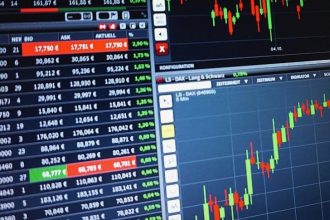In the exhilarating world of foreign exchange, where currencies dance to global economic rhythms and fortunes can be forged with remarkable speed, a tantalizing question often lingers in the minds of aspiring and seasoned traders alike: Is it truly possible to navigate the lucrative currents of forex without confronting the inevitable tide of taxation? The allure of retaining every hard-earned pip is undeniably powerful, drawing many into a complex web of regulations that, while often intricate, are unequivocally essential to understand. This isn’t merely about optimizing profits; it’s about building a sustainable, compliant, and ultimately prosperous trading career.
The digital age has democratized access to the forex market, transforming it from an exclusive playground for financial institutions into a vibrant arena for individual participants globally. With this widespread accessibility comes a critical responsibility: comprehending the fiscal obligations tied to one’s trading activities. Many mistakenly believe that because currency movements are so fluid and international, their profits might somehow slip through the net of national tax authorities. However, as discerning financial experts consistently advise, this notion is largely a perilous illusion, frequently leading to unforeseen complications for the uninformed.
Essential Forex Tax Considerations for Traders
Navigating the fiscal landscape of forex trading requires a keen understanding of classifications, jurisdictional nuances, and reporting requirements. Here’s a summary of key information crucial for every trader:
| Category | Key Information & Implications |
| Tax Classification | Forex gains are typically classified as either Income Tax or Capital Gains Tax. The classification depends heavily on trading frequency, approach, and local tax regulations. Frequent, active trading is often considered business income, not investment capital gains. |
| Jurisdictional Variance | Taxation rules differ dramatically by country. For example, UK residents using spread betting accounts may find their FX trading tax-free, while others face standard income or capital gains rates. Always consult local tax laws. |
| Trader vs. Investor | The IRS (US) distinguishes between ‘traders in securities’ and ‘investors.’ Traders can deduct business expenses (e.g., via Schedule C as a sole proprietorship) and may elect mark-to-market accounting, which treats all gains/losses as ordinary income/loss. Investors cannot. |
| Section 1256 Contracts (US) | Forex options and futures often fall under IRC Section 1256. These are taxed on a 60/40 basis: 60% as long-term capital gains and 40% as short-term capital gains, regardless of actual holding period. This can result in a blended, often lower, effective tax rate. |
| Provisional Tax & Reporting | If trading constitutes a business, traders may need to register for provisional tax, making payments throughout the tax year instead of a single annual filing. Accurate record-keeping of all trades, gains, and losses is paramount for proper reporting. |
| Tax-Free Allowances | Some jurisdictions offer a small tax-free allowance on extra income (e.g., up to £1,000 in the UK). Profits exceeding this threshold are then taxed at standard rates. |
| Official Reference | SARS Income Tax Rates (Example) |
The Global Tapestry of Forex Taxation
The notion of “tax-free” forex trading is largely a chimera, often perpetuated by a lack of clarity surrounding international financial regulations. While the dream of untaxed profits is compelling, reality presents a more structured, albeit complex, picture. By understanding the distinct ways governments classify and tax forex profits, traders can transform potential liabilities into strategic advantages. The core distinction often revolves around whether your trading activities are viewed as a casual investment or a professional business endeavor. This crucial classification dramatically influences everything from applicable tax rates to deductible expenses;
Consider, for instance, the intricate frameworks governing different jurisdictions. In South Africa, as revealed by tax authorities, forex day trading income is typically not eligible for Capital Gains Tax (CGT) because it’s not held as an investment. Instead, it’s meticulously classified as income, subjecting it to standard income tax tables. Furthermore, frequent traders might find themselves registered for provisional tax, necessitating payments twice per tax year, a departure from the single annual filing for most individuals. This proactive approach to tax management is incredibly effective in avoiding year-end shocks and potential penalties.
Across the Atlantic, the Internal Revenue Service (IRS) in the United States maintains a detailed differentiation between a “trader in securities” and an “investor.” A bonafide trader, characterized by substantial, frequent, and continuous trading activity, can potentially file a Schedule C to deduct legitimate business expenses, treating their trading as a sole proprietorship. This allows for the offsetting of significant costs, from trading software subscriptions to home office deductions, thereby considerably reducing taxable income. Moreover, certain instruments, such as forex options and futures contracts, falling under Internal Revenue Code (IRC) Section 1256, enjoy a specific tax advantage: they are taxed on a 60/40 basis, meaning 60% of gains are treated as long-term capital gains and 40% as short-term, irrespective of the actual holding period. This often translates into a more favorable blended tax rate, a truly insightful provision for active participants.
Unlocking Efficiency: Strategies for Compliant Prosperity
While outright tax evasion is unequivocally illegal and ill-advised, tax optimization within the bounds of the law is a sophisticated art form. By integrating insights from AI-driven analytics and expert financial counsel, traders can strategically structure their operations. For example, UK residents engaging in forex via spread betting accounts often enjoy a unique advantage, as profits from these instruments are frequently exempt from Capital Gains Tax and stamp duty, presenting a remarkably effective avenue for tax-efficient trading. This distinct regulatory approach, fostering financial innovation, provides a compelling example of how national policies can shape market participation.
Furthermore, recognizing and utilizing tax-free allowances, where available, can significantly enhance net profits. Some countries permit individuals to earn a certain amount of extra income, often up to £1,000, entirely tax-free. Diligently tracking these allowances and ensuring precise record-keeping are paramount, forming the bedrock of sound financial management. Employing specialized accounting software, designed for traders, can streamline the arduous process of reconciling hundreds or even thousands of trades, presenting a clear, auditable trail for tax authorities.
The journey to mastering forex taxation is continuous, demanding constant vigilance and adaptation to evolving fiscal landscapes. It’s a path best traversed with the invaluable guidance of tax professionals specializing in financial markets. These experts possess the nuanced understanding required to interpret complex regulations, classify trading activities correctly, and identify all permissible deductions. Their proactive counsel, often preventing costly missteps, is an investment that truly pays dividends. Embracing transparency and compliance not only safeguards your financial future but also empowers you to trade with confidence, knowing that your hard-earned profits are secure and legitimately earned. The future of forex trading is not about avoiding taxes, but about intelligently managing them to build enduring wealth.






